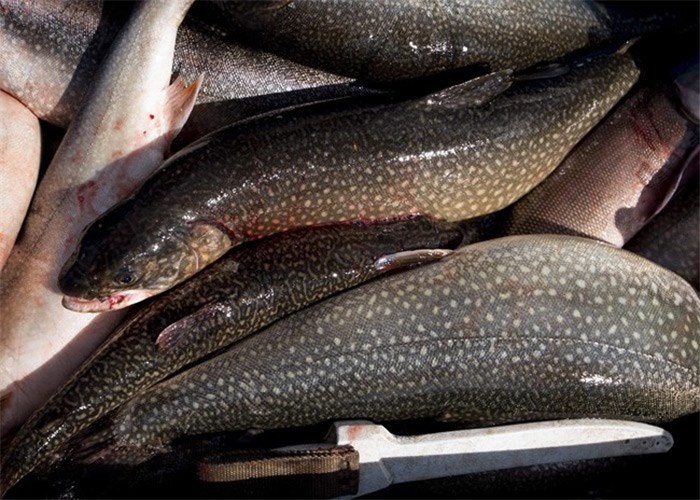 This May 22, 2017 photo shows lake trout with tags kept in a container after being removed from Yellowstone Lake in Yellowstone National Park. A detailed study of how climate change will affect fish stocks in Canada and the U.S. concludes dozens of species are moving hundreds of kilometres away from their normal range. THE CANADIAN PRESS/AP-Mark Davis/The Powell Tribune via AP
This May 22, 2017 photo shows lake trout with tags kept in a container after being removed from Yellowstone Lake in Yellowstone National Park. A detailed study of how climate change will affect fish stocks in Canada and the U.S. concludes dozens of species are moving hundreds of kilometres away from their normal range. THE CANADIAN PRESS/AP-Mark Davis/The Powell Tribune via AP
A detailed study of how climate change will affect fish stocks in Canada and the United States concludes dozens of species are moving hundreds of kilometres away from their normal range.
The research, published this week, says some of the biggest effects will be felt along the coast of British Columbia.
Author James Morley of Rutgers University in New Jersey says that will likely cause problems for governments as they try to rebalance shares of the catch.
Morley looked at 686 marine species in both the Atlantic and Pacific oceans.
He found that even if climate change is kept under two degrees, species off Canada's West Coast will move by an average of more than 200 kilometres.
![]()


